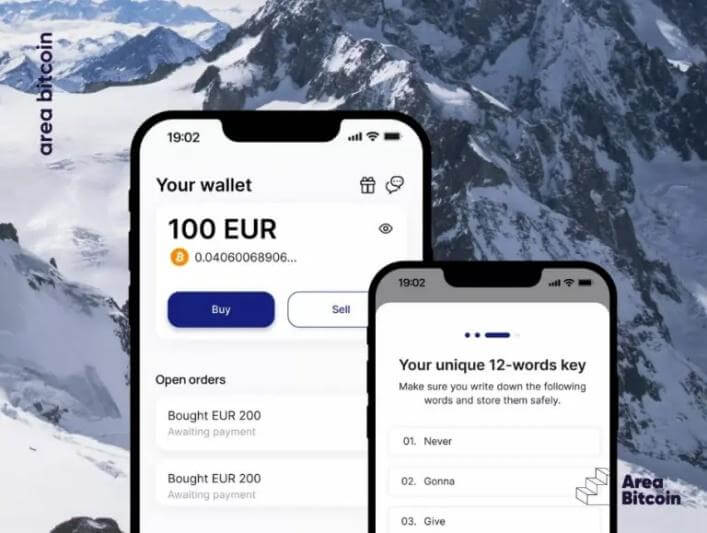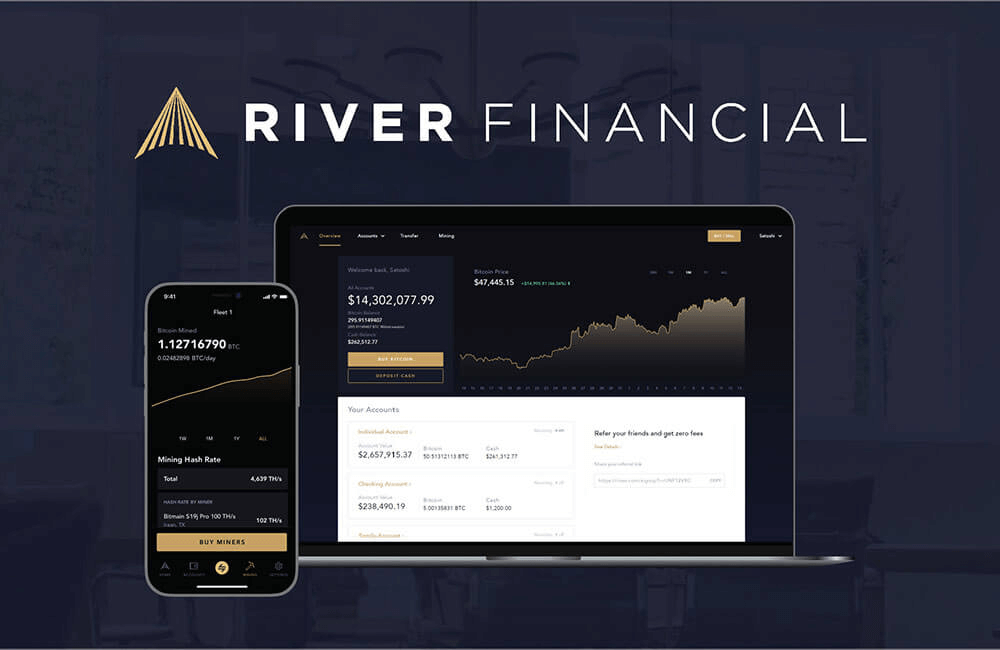KYC is a process designed to identify and verify the identity of platform users, often presented as a key tool to combat financial crimes and ensure transaction security. However, beneath this narrative lie critical issues that are rarely addressed.
For many, KYC comes at a high cost: the invasion of privacy, the risk of sensitive data leaks, and the financial exclusion of those unable to meet bureaucratic requirements.
In Bitcoin, KYC presents a contradiction. Rather than protecting users, it exposes them to potential abuses of power and centralizes information within systems historically prone to failure and corruption.
In this article, we’ll explain what KYC is and how it relates to Bitcoin. You’ll also discover the main methods for buying BTC without KYC.
Let’s dive in!
Table of contents:
What is KYC or Know Your Customer?
KYC, or “Know Your Customer,” is a process companies use to verify the identity of their customers. It typically requires submitting documents like an ID and proof of address to confirm that the customer is who they claim to be.
Governments and financial institutions argue that KYC’s main purpose is to prevent financial crimes, such as money laundering and fraud. However, these measures often go beyond what’s necessary, compromising individual privacy and financial freedom in favor of centralized control.
What is the Purpose of Know Your Customer?
Know Your Customer (KYC) is a process in the financial sector aimed at verifying the identity of platform users. It is often justified as a way to reduce fraud and combat financial crimes such as money laundering and terrorism financing.
In practice, KYC enables banks, fintechs, and exchanges to closely monitor their users, under the premise that this enhances security and regulatory compliance. However, this level of control often extends beyond “protection,” strengthening the power of governments and financial institutions by granting access to sensitive personal information, including identity documents, proof of address, and even selfies.
These data, stored on centralized servers, heighten the risk of data breaches and privacy violations, leaving users vulnerable to potential abuses. While governments promote KYC as a tool for meeting international compliance standards and preventing illegal activities, the reality is that it reinforces centralization and expands control over everyday citizens.
In the context of Bitcoin, KYC is seen by many as a direct affront to the principles of decentralization, privacy, and autonomy. More than a tool against crime, KYC becomes an instrument to limit anonymity and reinforce the dominance of the same power structures that Bitcoin seeks to challenge.
How Does Know Your Customer Work?
The Know Your Customer process involves a series of steps that companies follow to verify the identity of their customers, typically required during registration on financial platforms such as banks, exchanges, and fintechs.
Here’s how it works:
- Registration and collection of personal information: the customer fills in basic information, such as full name, date of birth, email, or phone number. These initial details serve as the basis for the verification process.
- Submission of documentation: after providing personal data, the customer is asked to submit identity documents, such as an ID card, passport, or driver’s license, as well as a recent proof of address. This is to confirm that the individual is who they claim to be.
- Photo identity verification: in many cases, companies request a selfie or a photo of the customer holding their ID document. This step helps prevent the use of fake documents and ensures that the person registering is, in fact, the owner of the submitted documents.
- Risk analysis and compliance: after verifying the data, the company performs a risk analysis, searching for additional information about the customer in public and private databases. The goal is to identify possible criminal records, fraud history, or any other suspicious activity.
- Approval or rejection of the registration: based on the verified information, the company decides whether to approve or reject the registration. If something suspicious is found, the company may deny or limit the customer’s access to the service.
While financial companies justify this process as necessary for regulatory compliance and security, it is highly intrusive and raises concerns about privacy and data security.
Why Is KYC Important for Businesses and Governments?
Financial companies, including banks, fintechs, and exchanges, implement KYC to comply with government regulations and prevent being used for illicit activities.
For governments, KYC serves as a powerful tool to:
- Track financial transactions.
- Collect taxes on capital gains.
- Monitor and control who holds significant wealth.
And for Individuals?
While KYC offers a layer of protection against fraud on centralized platforms, it also raises significant concerns. The demand for sensitive personal data heightens the risks of:
- Personal information leaks: Stored data becomes a target for hackers and breaches.
- Abuse of power: Governments and corporations gain unprecedented control over individuals.
- Loss of privacy: Individuals sacrifice autonomy over their financial and personal data.
Is KYC a Threat to Bitcoin?
When it comes to Bitcoin, people fall into two camps: those who view it as a financial asset (a means to an end), and those who view Bitcoin as a tool for privacy and financial freedom, where you do not rely on third parties to use your own money.
For proponents of sovereignty, KYC enables governments to force individuals to declare their assets and monitor all their financial transactions. In authoritarian regimes, this surveillance can turn into arbitrary confiscation, often disguised under the pretext of tax laws.
Governments claim KYC is essential for combating financial crimes, yet studies reveal that illicit Bitcoin activity accounts for only a negligible percentage of transactions. This suggests KYC’s primary goal is not security but control: identifying who holds wealth and profits from capital gains.
For those who see Bitcoin as merely an asset, purchasing it through KYC-compliant platforms and declaring it to the government is often seen as a minor inconvenience. Their focus is on using Bitcoin for future purchases or converting it to fiat, so KYC does not significantly interfere with their objectives.
In summary, KYC is less a threat to Bitcoin itself and more a challenge to individual privacy and financial sovereignty.
Key Characteristics of Bitcoin
Bitcoin was designed as a decentralized currency, enabling transactions without relying on third parties or intermediaries like banks or governments. This independence is a cornerstone of Bitcoin, and those who understand its purpose often oppose KYC, taxes, and any measures that undermine user privacy.
Bitcoin’s design requires no personal data: anyone—even an artificial intelligence—can use it for payments. There’s no need for identities, proof of address, or any bureaucracy. All that’s necessary is a wallet that adheres to the network’s consensus rules. This simplicity sharply contrasts with traditional financial systems, where money is tied to information that tracks its origin and destination.
KYC transforms this freedom into vulnerability. Collecting sensitive data about who owns Bitcoin and how much they possess opens the door to corrupt or abusive use of that information.
While Bitcoin is technically harder to confiscate, KYC-compliant exchanges create a loophole. Governments with access to data about Bitcoin buyers can track individuals and pressure them to surrender their coins.
In this light, KYC becomes more than a compliance measure—it’s a threat to individual sovereignty. It exposes users to data breaches and empowers centralized authorities to misuse sensitive information.
KYC serves centralized powers far more than it protects the public.
Is It Possible to Buy Bitcoin Without KYC?
Yes, it is possible to buy Bitcoin on platforms that do not require the Know Your Customer (KYC) process.
Although many platforms require KYC to comply with regulations, there are market options where this practice is not mandatory, offering users greater privacy.
Let’s explore some of these options below, including P2P platforms, Bitcoin ATMs, and decentralized platforms.
1. P2P
Peer-to-peer (P2P) platforms like Bisq, Robosats, and Hodl Hodl enable direct transactions between buyers and sellers without intermediaries.
On these decentralized platforms, users can trade Bitcoin directly with each other, with various payment options, and once the payment is completed, the funds are sent directly to your Bitcoin wallet.
While these platforms may require KYC depending on the amount or country, the majority of transactions are conducted without verification.
Additionally, these platforms offer various layers of protection for buyers and sellers. Bisq, for instance, uses security deposits, features an arbitration system for disputes, and has a reputation system for users.
2. ATM
Bitcoin ATMs are a popular option for buying Bitcoin without undergoing a full KYC process. You can purchase cryptocurrency with cash by inserting bills and receiving the BTC directly in your wallet.
However, keep in mind that in some locations, larger transactions may require identification.
The good news is that websites like CoinATMRadar can help you find nearby ATMs and check their usage requirements. This makes Bitcoin ATMs a convenient and anonymous option for smaller purchases — but beware: ATM transactions typically come with higher fees.
Should You Buy Bitcoin With or Without KYC?
If you purchase Bitcoin with the intent to convert it into an asset in the future, you might opt to buy it with KYC, as you will need to prove the source of funds when converting it to fiat or even when registering it under your name for a high-value asset.
On the other hand, those who wish to maintain total privacy will prefer to buy without KYC. These people usually avoid acquiring assets tied to the fiat system, such as cars and real estate, and instead use Bitcoin as a store of value for generational wealth transfer.
The most important thing is to reflect on what you intend to do with this Bitcoin in the future: what is your goal, and what tools will you use in a favorable scenario — such as when you can use Bitcoin for payments — or in a challenging scenario where excessive taxes and loss of privacy may exist.
Coin Selection
In certain Bitcoin wallets, you can perform coin selection, allowing you to manage both KYC and non-KYC Bitcoin within the same wallet and choose which to use for specific transactions.
For example:
- KYC Bitcoin: Use coins acquired through platforms requiring identity verification for purchases like real estate, as these have been declared to tax authorities.
- Non-KYC Bitcoin: Retain coins obtained without identity verification for private transfers, such as passing wealth to family, without converting them into assets linked to the fiat system.
Sparrow Wallet facilitates this organization by enabling you to label your Bitcoin, indicating their source or method of acquisition.
Conclusion
As discussed in this article, Know Your Customer (KYC) is a standard practice in the financial sector, promoted as a means to combat fraud and illegal activities.
For users of centralized exchanges like Binance, KYC ensures regulatory compliance. However, it clashes with Bitcoin’s core principles of financial sovereignty and enhanced transaction privacy.
Alternatively, those who value privacy can explore non-KYC options such as P2P platforms, Bitcoin ATMs, and decentralized exchanges. While these methods may involve higher fees, they allow transactions without sharing personal information.
Ultimately, KYC presents a trade-off between convenience and privacy. For some, it’s just a formality; for others, it’s a tool of financial control.
Whatever your preference, understanding how these options work is a crucial first step in making informed decisions about how to manage and store your satoshis according to your priorities.
Thank you for reading—best regards, and opt out!
Share on your social networks:

Founder of Area Bitcoin, one of the largest Bitcoin education projects in the world, she is a marketer, passionate about technology, and a full-time hands-on professional. She has participated in major Bitcoin conferences such as Adopting Bitcoin, Satsconf, Surfin Bitcoin, and Bitcoin Conference.
Did you like this article? Consider buying us a cup of coffee so that we can keep writing new content! ☕







